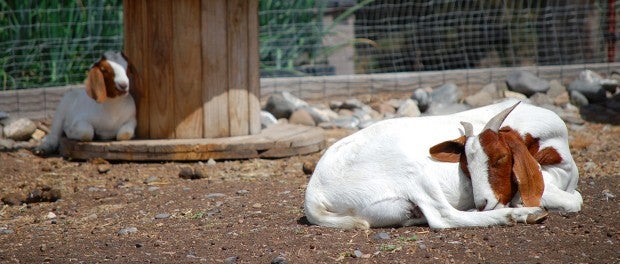Getting Started with Goats

In recent years there has been a surge in the popularity of goats in farm settings. As items such as goat’s milk, goat cheese, goat meat, and products made from goat’s milk such as soaps and lotions experienced a surge in demand, so did goats themselves. This has resulted in people owning goats that may not have owned them previously as the goat market continues to rise.
When it comes to owning and caring for goats, there are some things you should know. As with any livestock venture, there are specific needs of goats that must be met, many of which need to be in place before your new acquisitions arrive. Once you’ve determined the breed of goat you wish to have and what your intended purpose is for those animals, it is vital that your property be both goat ready as well as goat proof in order to keep these animals safe and healthy so that your experience with them will be as successful and seamless as possible.
The first thing you are going to need to think about before bringing goats home is housing and containment. This means not only secure fencing but also a shelter to protect them from the elements. Class 1 galvanized sheep and goat fence is idea because in addition to keeping goats in, it can aid in keeping predators out. Though goats may try to place their heads through the fence, the mesh structure goes a long way towards preventing this, but if it does happen, the wire is designed to prevent or minimize injury. Inside of the pen you construct, goats will need a shelter. This can be similar to an oversized dog house or even a lean-to type structure that is three-sided with a sturdy roof. It is ideal to have a door that closes, however, so goats can be closed in away from hungry predators. Once your structure is in place, add straw bedding inside and your goats are good to go.
Now that your goats have an area to call home, it is time to prepare a feeding area. The typical goat diet should consist of grass and hay fed regularly if you wish them to be grass-fed but grain can be added based on your personal feeding preferences. All of this should be fed up off the ground in pans or mangers as eating directly from the ground promotes parasites. Also essential is a mineral block that should be placed in a pan rather than in direct contact with the ground as well. This should be accessible at all times and offered free-choice along with baking soda to prevent bloat. Goats will consume these items as their bodies need them so you do not need to worry about under or overfeeding.
Regular deworming is a part of goat ownership and new goats should be placed right into the rotation. The age of your goat depends on its worming needs, but regardless of age, all goats need to be on a parasite prevention plan such as this one. Keep a watch over your goats for signs of parasites (pale gums, rough coat, slow growth) and treat them accordingly with approved dewormers at the appropriate dose for easy animal for maximum effectiveness.
With these bases covered, you are ready to bring home some goats! With proper maintenance and care, goats are sure to thrive, providing your family with both sustenance in the form of milk, meat, and goat-made products. The joys of goat ownership are many and in addition to the nutrition they provide, they are sure to give you endless entertainment as they grow and play.






 Your Privacy Choices
Your Privacy Choices
Leave a comment